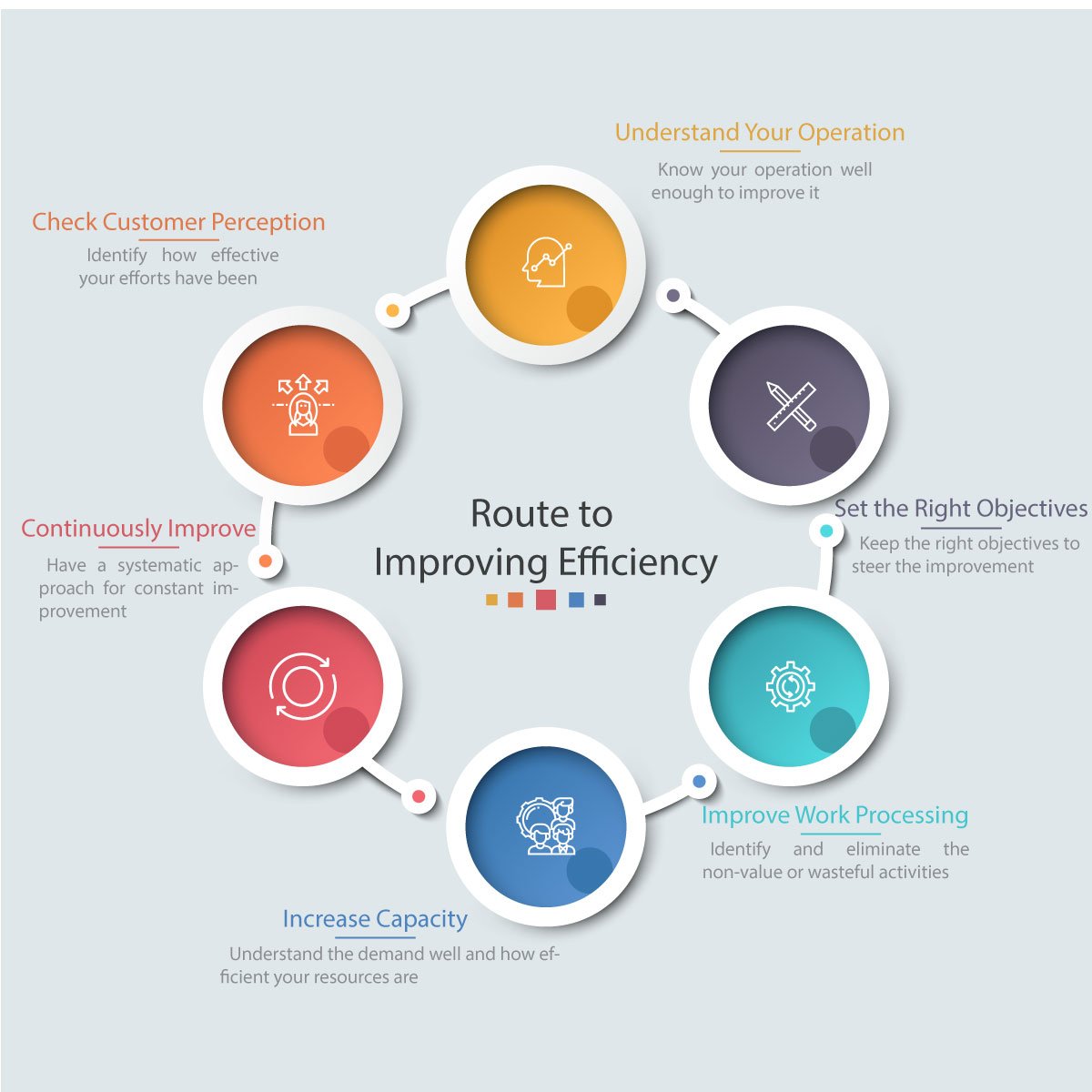
Efficiency Improvement Tips: Boosting Business Productivity

Revolutionizing Productivity: Efficiency Improvement Tips for Business
In the fast-paced world of business, efficiency is the linchpin of success. Businesses that continually seek ways to enhance productivity and streamline operations are better positioned for growth. Let’s explore some actionable Efficiency Improvement Tips that can revolutionize the way businesses operate and thrive.
Strategic Automation for Routine Tasks
One of the most impactful Efficiency Improvement Tips is the strategic use of automation. Identify routine and repetitive tasks within your business processes and leverage automation tools. Whether it’s automating email responses, data entry, or customer service inquiries, automation can free up valuable time for your team to focus on more complex and strategic aspects of their roles.
Streamlining Communication Channels
Communication is the backbone of any successful business. Streamlining communication channels is a crucial Efficiency Improvement Tip. Implement unified communication platforms that bring together emails, messaging apps, and project management tools. This integration fosters seamless communication, reduces the risk of information silos, and enhances overall collaboration.
Agile Project Management for Flexibility
Adopting agile project management methodologies is essential for businesses aiming to improve efficiency. Agile allows for flexibility and adaptability in project execution. By breaking down projects into manageable sprints and regularly reassessing priorities, teams can respond swiftly to changing circumstances and deliver results more efficiently.
Data-Driven Decision-Making
Efficiency improvement is closely tied to informed decision-making. Embrace a data-driven approach by leveraging analytics and business intelligence tools. Analyzing data provides valuable insights into performance metrics, customer behavior, and market trends. Informed decisions based on data contribute to more effective and efficient business strategies.
Employee Training and Skill Development
Investing in employee training and skill development is a long-term Efficiency Improvement Tip. Well-trained employees are equipped to handle tasks more efficiently and contribute to the overall success of the business. Regular training sessions, workshops, and access to educational resources empower your workforce to stay updated on industry trends and technologies.
Optimizing Workflow Processes
Efficiency improvement often involves a critical assessment of existing workflow processes. Regularly review and optimize your business processes to identify bottlenecks, redundancies, and areas for improvement. This continuous refinement ensures that your workflows remain agile, responsive, and aligned with the evolving needs of your business.
Embracing Remote Work Practices
The modern business landscape has seen a significant shift towards remote work. Embracing remote work practices can be a game-changer in improving efficiency. It allows businesses to tap into a global talent pool, reduces overhead costs associated with physical office spaces, and provides employees with a flexible work environment that can enhance productivity.
Customer-Centric Approach for Success
Efficiency improvement is not solely an internal matter; it extends to customer interactions. Adopting a customer-centric approach ensures that your business is focused on meeting the needs and expectations of your clientele. Streamline customer support processes, personalize interactions, and actively seek feedback to continuously enhance your products or services.
Energy Conservation and Sustainable Practices
Efficiency improvement also encompasses energy conservation and sustainable practices. Evaluate your business operations to identify areas where energy consumption can be reduced. Implementing sustainable practices not only contributes to environmental responsibility but also often leads to cost savings in the long run.
Regular Performance Reviews and Feedback Loops
Establishing a culture of continuous improvement involves regular performance reviews and feedback loops. Provide constructive feedback to employees, acknowledging their strengths and identifying areas for development. Similarly, encourage employees to share their insights on improving processes. This collaborative approach fosters a culture of continuous learning and refinement.
Explore Efficiency Improvement Tips for Your Business
To delve deeper into these Efficiency Improvement Tips and explore how they can be tailored to your business needs, visit Efficiency Improvement Tips Business. Revolutionize the way your business operates by implementing strategic changes that enhance productivity, collaboration, and overall efficiency.



